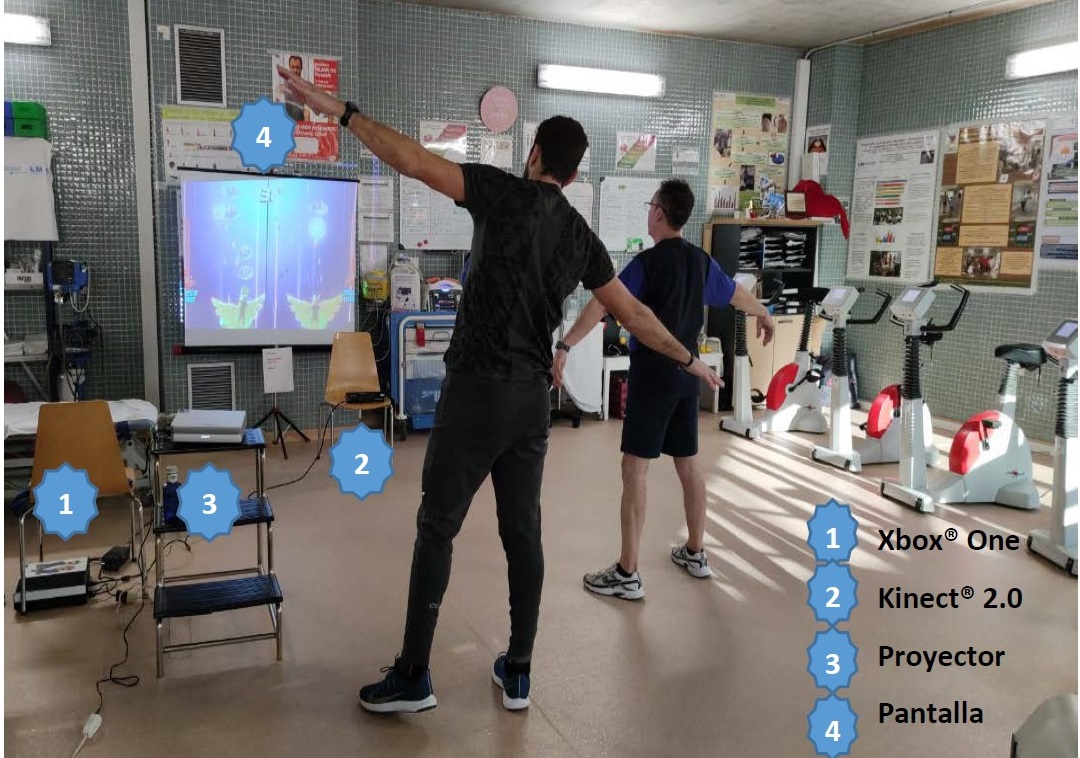Abel Verard Mendez/Irene Vega
Cardiovascular diseases are the leading cause of mortality worldwide. A figure that, especially in developed countries, is expected to increase due to population ageing. In this context, ischemic heart disease is a complex and multifactorial disease, which occurs when the arteries that supply blood to the heart muscle become obstructed, so that blood flow does not reach it. In Europe alone, cardiovascular disease is estimated to be the cause of 47% of all deaths
Sara García Bravo, a student at the URJC, has developed her doctoral thesis, under the supervision of Roberto Cano de la Cuerda, physiotherapist and director of the Department of Physiotherapy, Occupational Therapy, Rehabilitation and Physical Medicine, and Alicia Cuesta Gómez, physiotherapist and professor at the same department. His project consists of the application of technologies based on virtual reality as a therapeutic complement to a conventional rehabilitation program for patients with ischemic heart disease. To carry out the research, a clinical trial was carried out with the aim of studying the effects of using a regular training program combined with virtual reality and video games, in this case the XBOX ONE video game console and the Kinect 2 sensor. “The main advantage offered by this type of therapy is found in the motivational factor, since it adheres the individual to the treatments and increases their socialization, which implies a decrease in the abandonment of these therapies”, explain the researchers.
In ischemic heart disease, cardiac rehabilitation programs are essential to improve the patient's quality of life and have proven to be the most effective procedure for reducing mortality, the number of complications, hospital admissions, and the disabilities it can cause. “The use of technologies such as virtual reality has already spread in areas such as rehabilitation and physiotherapy. This is thanks to the creation and development of more accessible consoles and video games that allow practicing physical skills in an entertaining way and with the possibility of establishing different levels of intensity, according to the capabilities of the subject”, says Dr. Roberto Cano de la Cuerda.
A therapy that improves the patient's quality of life
The tests were carried out in the Cardiac Rehabilitation Unit of the Fundación Alcorcón University Hospital and the results indicate that the satisfaction and adherence generated by the patients reached statistically significant improvements. “Patients were randomly divided into two treatment groups: control and experimental group. Both groups received 60-minute sessions, two days a week for 8 weeks in the same Unit”. That is, the effects of different types of therapy were compared. The results of the experimental group revealed improvements in "ergometry, resistance to fatigue, quality of life and depression, with excellent adherence and perceived satisfaction, without the presence of adverse effects", the researchers explain.
For now, the study has only been carried out in patients with low-risk ischemic heart disease in phase II, but it is intended to study its effects in patients with other levels of risk and in other cardiovascular diseases. "Low-risk patients could benefit from this kind of treatment, so that virtual reality could be part of the basic equipment of this type of Unit", highlights Dr. Roberto Cano de la Cuerda.
Semi-immersive virtual reality has therefore emerged as a useful ally in patients with ischemic heart disease. As a result of her doctoral thesis, Sara García Bravo, together with the rest of the multidisciplinary team, made up of cardiologists, rehabilitation doctors, nurses and physiotherapists from the Cardiac Rehabilitation Unit of the Fundación Alcorcón University Hospital and the Rey Juan Carlos University, have published two JCR impact articles in magazines International Journal of Environmental Research and Public Health y Disabled Rehabilitation, respectively: “Effects of Virtual Reality on Cardiac Rehabilitation Programs for Ischemic Heart Disease: A Randomized Pilot Clinical Trial"And"Virtual reality and video games in cardiac rehabilitation programs. A systematic review".




